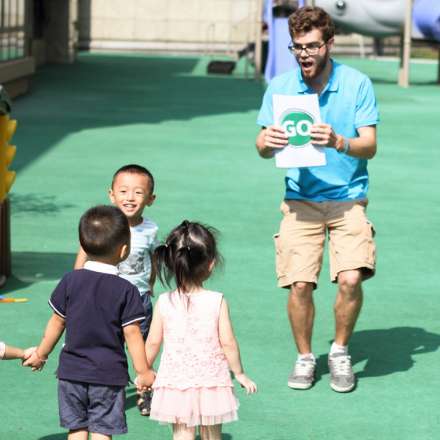Sometimes you will have planned a fabulous lesson and you’re amazingly confident that this is going to be the best lesson EVER! But then it all goes to pot. Too few students turn up, equipment doesn’t work, students aren’t in the mood, or some students finish activities before others and disrupt the class. So it’s always good to have some fun classroom activities. Activities that will turn you from a hot stress head into this marvellous teacher with many tricks up their icy sleeve? Here are a few TEFL activities I’ve used in my time.
1) Crossword Puzzles
These always come in handy for when you finish early and students love them, you can create your own crossword puzzles online and just print them out for your class! It’s also a great way to help your students learn key words.
2) Vocabulary Revision Games
If some students have finished an exercise before the others, you can challenge them to write down 10 items of vocabulary from a previous session (colours, days of the week, household objects). If the class finishes early, you can ask a student to come and stand with their back to the board. Write a previously taught word or phrase on the board and the class has to describe it to the student, who must guess the word/phrase. There are many vocabulary revision games out there and many to make up.
One of my friends devised the ‘cup of knowledge’ – she made a cup and put vocabulary inside it from previous classes. At the beginning/end of class she would ask students to pick a word from the cup and describe it to the rest of the class, the person to get the word first would win a point for their team.
3) Picture Flashcards
Great again to revise past vocabulary in games. One of my favourite games (especially for kids) is Kapunk! You need different coloured card with numbers from 10 to 1,000,000 on them and some cards with Kapunk! written on them. Put your students into teams and one student has to come to the board and compete against the others to win the chance to select a points card. If all teams draw/complete the task they can select a card. If they are unlucky enough to select a Kapunk! card they lose all of their points.
Tasks can range from anything from writing a correct sentence using the picture you have selected to spelling tasks using flashcards. You may want to let two students come to the board at a time to make the game more communicative and to build confidence or weaker/shyer students. Also you might want to develop rules such as teams not using English will be deducted 100 points, and you may wish to give groups one chance to spot mistakes and help their team members (this keeps them interested in what their team members are doing!).
4) Spot the Mistakes
Write up sentences on the board with things they have been taught but with common mistakes in them. Put students into groups to find the mistakes. Could be ‘Are you have photos?’, ‘I have much apples’ etc.
5) Add a Word
With children, you could do this by asking them to sit in a line on the floor (with a pen and paper), or with adults, you could do this orally. The first student has to write/say a word, then the next student has to add a word and so on. The aim is to get a full, correct sentence.
6) Ball Game
Having a ball in the class entails endless games. Students can ask/answer questions when they throw/catch the ball to each other. The teacher can throw the ball and do a quick quiz. You can give a topic and students throw to each other and say related vocabulary to the topic when they catch the ball. Also, another game is when the word must start with a letter which is the same as the last letter of the previous word. For example, if the first word is “dog,” then the next word could be ‘golf’.
7) Speaking Activities
Build up your bank of back up speaking activities. There are so many, but to name a few:
- Adults/Higher Level Students – Tell students they have to think of annoying habits their colleagues do/could do i.e ‘open the window when it’s cold’, ‘talking loudly on the phone’ ‘smoking in the building’ etc. Then put students into pairs/groups. First students have to confront their colleagues (choosing a few of the points brainstormed earlier) in a rude manner (Students always love this! Lots of fun and a great way for them to de-stress after a day at work). Then brainstorm together how to politely raise problems ‘I wonder if you could.’ ‘I’m sorry to mention this, but…’ etc. Then students redo the role play, this time politely.
- Lower Levels – Interviews. Lower levels always need and like to practice asking and answering. Choose a topic you know will interest the majority of your students and ask them to write some questions. Once they have finished they have to interview at least two other students and make notes on their answers. This can be done in groups (easier to monitor).
- Balloon Debate – Put students into teams and give each person a famous identity. Tell the students the balloon is too heavy and one person must jump/be pushed out of the balloon. They must fight for their position.
There are many, many fun classroom activities you can do – why not ask your colleagues what they do?! It’s always great to add another to the mix!!



